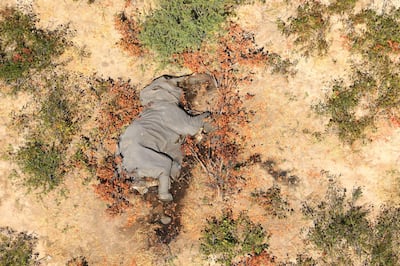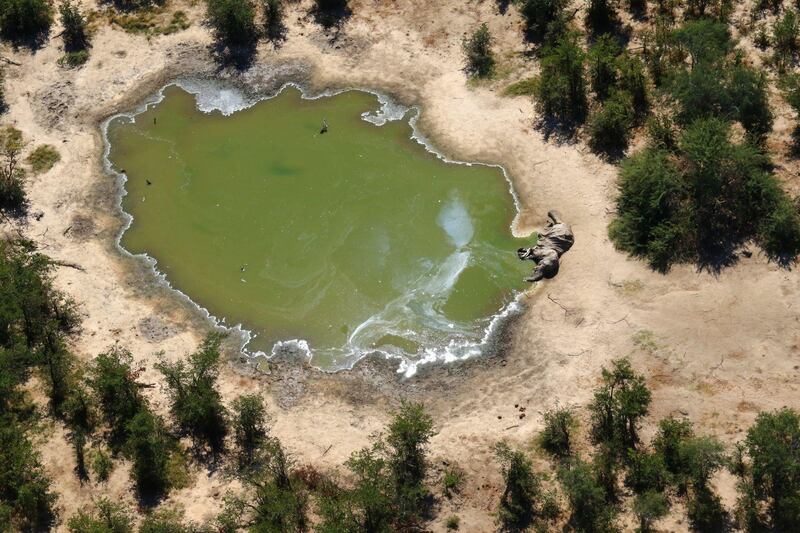Toxins in water produced by cyanobacteria killed more than 300 elephants in Botswana this year, officials said on Monday after an investigation into the deaths that baffled and alarmed conservationists.
Cyanobacteria are microscopic organisms commonly found in water and sometimes in soil.
Not all produce toxins but scientists say those that do are occurring more frequently as climate change increases global temperatures.
Cyril Taolo, deputy director of the Department of Wildlife and National Parks, said the number of elephant bodies found since deaths were first reported in early May had risen to 330, from 281 in July.
"What we just know at this point is that it's a toxin caused by cyanobacteria," Mr Taolo said. Though, the specific type of neurotoxin had yet to be established.
Authorities will monitor the situation during the next rainy season, and he said for now there was no evidence to suggest Botswana's wildlife was still under threat, because no more deaths had been reported.
The department's principal veterinary officer, Mmadi Reuben, said questions remained as to why only elephants had been affected.
Other animals in the Okavango Panhandle region appeared unharmed.
Some cyanobacterial blooms can harm people and animals, and scientists are concerned about their effect.
Southern Africa's temperatures are rising at twice the global average, the Intergovernmental Panel on Climate Change said.
"It amounts to having the right conditions, in the right time, in the right place and these species will proliferate," said Professor Patricia Glibert of the University of Maryland Centre for Environmental Science, who has studied cyanobacteria.
"These conditions are coming together more often in more places, so we are seeing more of these toxic blooms around the world."
In neighbouring Zimbabwe, about 25 elephant carcasses were found near the country's biggest game park and authorities suspect they succumbed to a bacterial infection.
The animals were found with tusks intact, ruling out poaching and deliberate poisoning.

Parks authorities believe the elephants could have ingested the bacteria while searching for food. The carcasses were found near water sources.
"We considered the possibility of cyanobacteria but we have no evidence that this is the case here [in Zimbabwe]," said Chris Foggin, a veterinarian at the Victoria Falls Wildlife Trust.
Zimbabwe has sent samples to the UK and is waiting for permits to send samples to two other countries, Mr Foggin said.
Africa's overall elephant population is declining due to poaching but Botswana, home to almost a third of the continent's elephants, has seen numbers grow to about 130,000.






